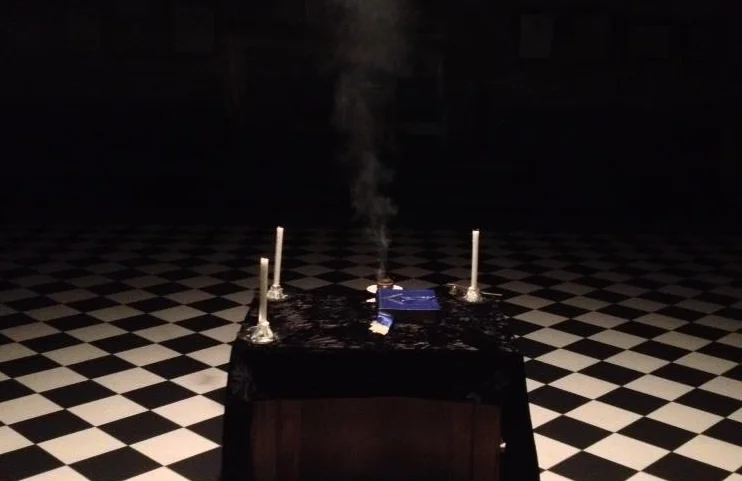Freemasonry is entirely built around traditions. Its intellectual inspiration was born from the determination of Isaac Newton and his friends to create an area of freedom in an England torn apart by civil and religious war. Ever since there have been lodges in Scotland, men have passed between the pillars of King Solomon’s Temple, that epitome of soul-searching reflection, to nurture a harmonious distinction between tradition and modernity. Freemasonry perceives the harmony of opposites as the secret of life and the world.
The Mason’s Temple is a volume of freedom of expression, reflection, education, and progress; it is not a cube. It is a consecrated space enabling each one who meets therein to be truly free, to meet on the level without regard for rank in society or partisan concerns. A Masonic Temple is not a secret place, only a protected one. Freemasonry is an initiatory society offering men a working method which will enable each initiate to make his way toward moral and intellectual perfection. In the lodge, men from every walk of life, of all ages, every social category and every spiritual and philosophical conviction find a basis for reflection through a common language and a common culture in an authentically fraternal relationship. Freemasons are united by their initiation and they come together in a common ideal of freedom, equality, social justice, non-denominationalism and peace. There is thus a sacred space within every Masonic Temple, but for its members, it represents only a transcendence of the human condition. Freemasonry was founded first to emancipate consciences; not concern itself with the saving of souls.
To establish its fundamental values and provide a guarantee of equality to all, Freemasonry has adopted the tools of the operative masons as symbols to remind members of their freely consented obligations. Aprons, gloves, collars and jewels are not just raiment’s of clothing, but a reminder of a common commitment to work together for the progress of humanity, a common respect for rules which cannot sully the purity of the institution’s intentions, or the equality of all members within the lodge.
It is not the trappings of the fraternity that make the light. It is not the apron that makes the Mason. It is his individual commitment and obligation to listen, work and share with his brothers a common quest for spiritual and personal growth by integrating into his being the moral and ethical principles which comprise an enlightened heart and mind. The vocation of Masonry is spiritual, its demand humanist, and its heritage toleration, the rights of man, and the independence of people everywhere.
The rituals and traditions of Freemasonry tend toward universalism rather than occultism. The aprons, lodge furnishings, decorations and regalia of the fraternity are not there to keep the uninitiated at a distance, but to bear witness to the Masonic movement’s attachment to its history and symbolism. They are a permanent and ubiquitous reminder to every brother of the purpose of his commitment. Even though Freemasonry may have evolved with time, and the years and centuries may have invited change within the organization, its object has remained immutable: to reveal men in their fullness, that fullness in knowing how to search the realms of spirituality and philosophy within the archetypes of maleness to find and embrace the mature masculine soul.
It may be seen by the outsider as a discreet and often poorly articulated institution, but Freemasonry has left a deep mark on the western world and its history. It is at once a philosophic, philanthropic and progressive institution working for the intellectual and social betterment of mankind through the practice of virtue, tolerance, and benevolence in every dimension of manhood. It was wholly founded on fraternity and its aim is to unite men despite their differences.
The vast network of Masonic symbolism teaches that Freemasonry is also a society aimed at helping man rise above his ordinary condition so that he may be better prepared for building a more humane and enlightened society. Whether in the sacred conclaves of the Masonic temple, or represented in the decorations of a Mason’s regalia, the ornaments of fraternity collectively recite the symbolic alphabet of a universal language that transcends all ethnic and cultural differences among men. It is a language which remains lost to nine-tenths of the world’s population. The unique and specific nature of Freemasonry’s approach and frame of thought represents its collective consciousness.
While often misunderstood, Masonic secrecy is in no manner meant to hide something. It is simply the secrecy that accompanies any spiritual or personal approach respecting the intimacy of an initiatory quest. It is a guarantee to every initiate of personal individual freedom to seek out and discover that which is the noblest and purist within his mind and soul.
Freemasons are without doubt men of tradition and, because they are men of tradition, they are men of progress. They do not hope for a nostalgic return to some past era, but for the tradition of transcendence and evolution of which every man in every time is capable. The hope of every Freemason is that tomorrow will be better than yesterday and today. That is the progress of the ages.
When fraternal men work together for their own perfection, they do so to participate fully in the life and progress of their time, and the progress of humanity.
The existence of an active traditional Freemasonry in a democratic society is the best guarantee and assurance of genuine spiritual and civic freedom.
Thank you for reading The Laudable Pursuit!
If you enjoyed this piece, please feel free to share it on social media sites and with your Lodge.
For more information on Bro. Robert G. Davis, please CLICK HERE
Also, visit us on Facebook: https://www.facebook.com/TheLaudablePursuit


